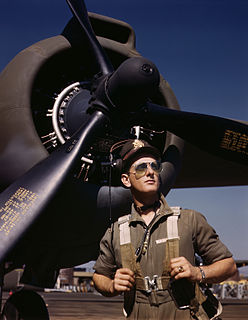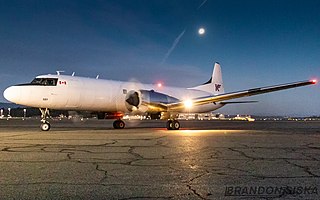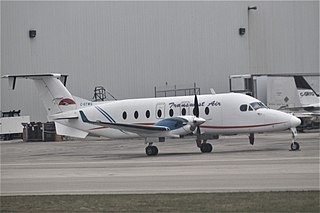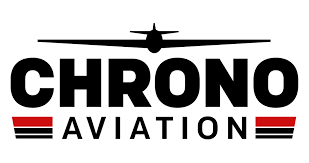
General aviation (GA) represents all civil aviation "aircraft operation other than a commercial air transport or an aerial work operation".
The Federal Aviation Regulations (FARs) are rules prescribed by the Federal Aviation Administration (FAA) governing all aviation activities in the United States. The FARs are part of Title 14 of the Code of Federal Regulations (CFR). A wide variety of activities are regulated, such as aircraft design and maintenance, typical airline flights, pilot training activities, hot-air ballooning, lighter-than-air aircraft, man-made structure heights, obstruction lighting and marking, model rocket launches, model aircraft operations, Unmanned Aircraft Systems (UAS) and kite flying. The rules are designed to promote safe aviation, protecting pilots, flight attendants, passengers and the general public from unnecessary risk.

An aircraft pilot or aviator is a person who controls the flight of an aircraft by operating its directional flight controls. Some other aircrew members, such as navigators or flight engineers, are also considered aviators, because they are involved in operating the aircraft's navigation and engine systems. Other aircrew members, such as drone operators, flight attendants, mechanics and ground crew, are not classified as aviators.

London International Airport is located 5 nautical miles northeast of the city of London, Ontario, Canada.

Québec City Jean Lesage International Airport, also known as Jean Lesage International Airport is the primary airport serving Quebec City, Canada. Designated as an international airport by Transport Canada, it is located 6 nautical miles west southwest of the city. In 2019 it was the eleventh-busiest airport in Canada, with 1,789,005 passengers and ninth-busiest by aircraft movements with 144,963. More than 10 airlines offer 360 weekly flights to destinations across Canada, the United States, Central America, Mexico, the Caribbean and Europe.

Air Georgian Limited was a privately owned charter airline based at Toronto Pearson International Airport in Mississauga, Ontario, Canada. Between 2000 and 2020 its main business was its operation as Air Canada Express on a Tier III codeshare with Air Canada for scheduled services on domestic and trans-border routes. Starting in 2020 Air Georgian began focusing on air charters, before ceasing operations in May, after a sale of its assets to Pivot Airlines, a company run by the same executives.

Transport Canada is the department within the Government of Canada responsible for developing regulations, policies and services of road, rail, marine and air transportation in Canada. It is part of the Transportation, Infrastructure and Communities (TIC) portfolio. The current Minister of Transport is Omar Alghabra. Transport Canada is headquartered in Ottawa, Ontario.
Pilot licensing or certification refers to permits for operating aircraft. They are issued by the Civil Aviation Authority (CAA) in each country, establishing that the holder has met a specific set of knowledge and experience requirements. This includes taking a flying test. The certified pilot can then exercise a specific set of privileges in that nation's airspace. Despite attempts to harmonize the requirements between nations, the differences in certification practices and standards from place to place serve to limit full international validity of the national qualifications. In addition, U.S. pilots are certified, not licensed, although the word license is still commonly used informally. Legally, pilot certificates can be revoked by administrative action, whereas licensing requires intervention by the judiciary system.

Pilot licensing in Canada is administered by Transport Canada under the Aeronautics Act and the Canadian Aviation Regulations (CARs).

Kelowna Flightcraft Air Charter trading as KF Cargo and Kelowna Flightcraft trading as KF Maintenance and Engineering is a cargo airline based in Kelowna, British Columbia, Canada. It operates long term cargo charters for couriers and freight companies, forest fire patrols, and aircraft sales and leasing in Canada and worldwide. It also provides maintenance and aircraft manufacturing services.

Brandon Municipal Airport is an airport located 4 nautical miles north of Brandon, Manitoba, Canada. It serves the City of Brandon and the surrounding regions of Western Manitoba and Eastern Saskatchewan, an area with a population of over 180,000 people. The airport is classified as an airport of entry by Nav Canada and is staffed by the Canada Border Services Agency (CBSA) on a call-out basis. CBSA officers at Brandon Airport can handle general aviation aircraft only with no more than 15 passengers.

Air Ontario Flight 1363 was a scheduled Air Ontario passenger flight which crashed near Dryden, Ontario, on 10 March 1989 shortly after takeoff from Dryden Regional Airport. The aircraft was a Fokker F28-1000 Fellowship twin jet. It crashed after only 49 seconds because it was not able to attain sufficient altitude to clear the trees beyond the end of the runway, due to ice and snow on the wings.

An air taxi is a small commercial aircraft which makes short flights on demand.

Transwest Air is a scheduled and charter airline primarily serving the Canadian province of Saskatchewan. Its headquarters and main base is at Prince Albert.

North Cariboo Air or North Cariboo Flying Service is an airline based in Alberta and British Columbia, Canada. It operates charter flights primarily for the oil and gas industry, as well as executive and general charter services, including sports teams and leisure groups both within and outside Canada. North Cariboo Air has a fleet of 18 aircraft registered with Transport Canada. These aircraft range in size from 9-100 seats, allowing for accommodating and adaptation of all project sizes. In addition NCFS offers private terminals in Calgary, Edmonton, Fort St. John, Vancouver and Prince George. The airline also offers cargo services, aerodrome management and fixed-base operator services.

The Beechcraft Super King Air family is part of a line of twin-turboprop aircraft produced by Beechcraft. The Model 200 and Model 300 series were originally marketed as the "Super King Air" family; the "Super" designation was dropped in 1996. They form the King Air line together with the King Air Model 90 and 100 series.

Cross-country flying is a type of distance flying which is performed in a powered aircraft on legs over a given distance and in operations between two points using navigational techniques; and an unpowered aircraft by using upcurrents to gain altitude for extended flying time. Cross country is distinct from purely aerial work in a small defined area requiring little navigation.
The US Federal Aviation Administration has adopted the name unmanned aircraft (UA) to describe aircraft systems without a flight crew on board. More common names include UAV, drone, remotely piloted vehicle (RPV), remotely piloted aircraft (RPA), and remotely operated aircraft (ROA). These "limited-size" unmanned aircraft flown in the USA's National Airspace System, flown solely for recreation and sport purposes, such as models, are generally flown under the voluntary safety standards of the Academy of Model Aeronautics, the United States' national aeromodeling organization. To operate a UA for non-recreational purposes in the United States, according to the FAA users must obtain a Certificate of Authorization (COA) to operate in national airspace. In December 2015 the FAA announced that all UAVs weighing more than 250 grams flown for any purpose must be registered with the FAA.

The use of unmanned aerial vehicles (UAVs) or Drones, is generally regulated by the national aviation authority of the country. Nevertheless, the International Civil Aviation Organization (ICAO) began exploring the use of drone technology as far back as 2005, which resulted in a 2011 report. France was among the first countries to set a national framework based on this report and larger aviation bodies such as the FAA and the EASA quickly followed suit, which eventually led to influential regulations such as Part 107 and Regulation (EU) 2019/947.

Chrono Aviation Inc., and its wholly owned subsidiary Chrono Jet Inc., is a charter airline headquartered at Québec City Jean Lesage International Airport. It operates aircraft in passenger, cargo and combi roles. It has bases at Montreal Saint-Hubert Longueuil Airport, Québec City Jean Lesage International Airport and Rimouski Aerodrome. It has over 265 employees.
















